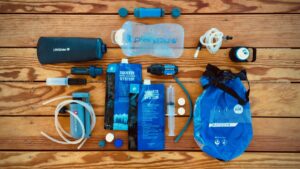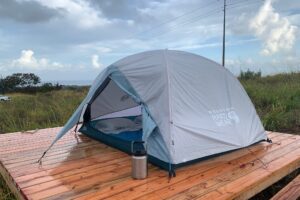The essential backpacking equipment checklist includes a backpack, shelter, sleeping bag, and water filter for beginners and experts alike. Backpacking is an amazing way to get outdoors and connect with nature while exploring some of the world’s most stunning landscapes.
But if you’re new to the adventure or a seasoned pro, having the right equipment is crucial. With so many options on the market, it can be challenging to know what to pack for your next trip. That’s why we’ve created this essential backpacking equipment checklist for beginners and experts.
From lightweight backpacks and shelters to water filters and sleeping bags, we’ve got you covered. So, whether you’re heading out on a weekend overnight hike or planning a multi-day trek, let’s dive in and see what you need to pack.
:max_bytes(150000):strip_icc()/the-ultimate-ski-trip-packing-list-and-expert-tips-for-the-mountain-tl-tout-fe2305b1054245d2b4e0f2cfc3b108b6.jpg)
Credit: www.travelandleisure.com
The Basic Gear: Types And Specifications You Must Know
Choosing Your Backpack: Size, Capacity, And Features
When it comes to choosing a backpack for your backpacking trip, there are several things to consider, such as the size, capacity, and features. Here are some key points to keep in mind:
- Size: Choose a backpack with a size that fits your body frame. The length of the backpack is crucial as it should match the length of your torso.
- Capacity: Consider the length of your trip and the amount of gear you need to carry before selecting the backpack’s capacity. A backpack with a capacity between 50 and 80 liters is suitable for most backpacking trips.
- Features: Look for backpacks with features such as multiple compartments, adjustable straps, and built-in rain covers. Backpacks with frames provide additional support, while frameless ones are lightweight and compact.
Selecting Your Sleeping Bag And Tent: Temperature Ratings, Weight, And Durability
Your sleeping bag and tent are essential for a good night’s sleep during backpacking trips. Here are some tips for selecting the right sleeping bag and tent:
- Sleeping bag: Look for a sleeping bag with a temperature rating suitable for the location and season of your backpacking trip. Also, don’t forget to consider the sleeping bag’s weight and durability.
- Tent: When choosing a tent, consider the size and ease of setup. If you are backpacking solo, a one-person tent will suffice. But, for a group trip, choose a tent that can accommodate your group comfortably. Also, consider the tent’s weight and durability.
Finding The Right Footwear: Hiking Boots, Shoes, Or Sandals—What’S Best For Your Adventure?
Wearing the correct footwear while backpacking is crucial to preventing injuries and ensuring your comfort. Here are some key points to remember when selecting footwear:
- Hiking boots: Hiking boots offer ankle support and are ideal for backpacking on steep or rocky trails. Choose boots with a sturdy sole and a comfortable fit.
- Hiking shoes: Hiking shoes are lightweight and more breathable than boots. They are suitable for less technical backpacking trips.
- Sandals: Sandals are perfect for backpacking in hot weather, but they don’t offer much support or protection. Only wear them when you are sure the trail is suitable.
Remember that the essential gear you choose will depend on the type of backpacking trip you plan to take. By focusing first on the basics and figuring out the essential backpacking gear, you’ll ensure that your trip is comfortable, safe, and enjoyable.
Essential Items For Your Survival & Well-Being
When preparing for a backpacking trip, it’s crucial to remember that you’ll be carrying everything you need on your back. As such, packing light is a priority. However, some essential items cannot be left behind. Here are some of the most important things to pack to ensure your survival and well-being:
Water Filtration And Purification Systems: How To Ensure You Are Drinking Safe Water
Drinking contaminated water can cause serious health problems. When backpacking, it’s crucial to ensure you’re drinking safe and clean water. Here are tips to help you filter and purify your water:
- Carry a water filter or purifier: Consider carrying a portable water filter or purifier to eliminate harmful bacteria, viruses and protozoa. A filter is adequate for most water sources. In case you encounter water that is cloudy or contains silt, a purifier would be more effective as it can remove chemicals and contaminants.
- Boil the water: When you can’t get your hands on a filter or purifier, boiling is an option. Boil the water for at least one minute and up to three minutes at higher altitudes. Boiling can kill the majority of harmful bacteria and viruses.
- Carry water treatment tablets: You can carry tablets that contain chlorine or iodine, to purify your water when boiling or filtering are not options. These are light and don’t take much space in your bag.
Proper Nutrition: Food Choice, Preparation, And Storage
Proper nutrition is vital when backpacking, as it can help you perform better and enjoy your trip more. Here are tips to ensure you’re getting the necessary nutrients:
- Choose lightweight, high-energy foods: When backpacking, go for nutrient-rich foods that are lightweight and compact. Pack food that can provide a high calorie-to-weight ratio such as whole-grain bread, nuts, and dried fruits and vegetables.
- Plan your meals: Plan your meals ahead of time and pack enough food for the entire trip. Divide your food into smaller portions and weigh them to ensure you carry the right amount. Pack food items that don’t contain a lot of moisture to prevent spoilage and bring utensils for cooking.
- Use bear-proof canisters: When it comes to storing food, animal-proof storage is a must. Bear-proof canisters are the most effective way to store food at night and when you’re away from your campsite.
First Aid Kit: Must-Have Items For Minor And Major Emergencies
A first aid kit is an essential item for backpackers. You should put together a comprehensive kit that includes items to help with minor and major emergencies.
- Antiseptics: This includes alcohol wipes, hydrogen peroxide, or an antibiotic like neosporin to prevent infection.
- Bandages and gauze: You need an abundant supply of adhesive bandages in assorted sizes for cuts, scrapes, and blisters. A few rolls of gauze come in handy in case you experience cuts that require more than a bandage.
- Pain relievers: Pain from a headache or muscle aches can ruin the fun of backpacking. Ibuprofen or different pain relievers can help relieve the pain.
- Tweezers and scissors: These can come in handy in case you get splinters or need to repair a torn piece of gear or clothing
- Inhaler: If you’re asthmatic or have allergies, an inhaler and antihistamines can help in case of an attack.
Overall, backpacking requires proper gear and equipment for you to have a successful and safe trip. Use this checklist to ensure you have the essential items for your survival and well-being.
Conclusion
As you prepare for your next backpacking adventure, remember that the key to a successful trip lies in your packing strategy. By following this essential backpacking equipment checklist, you’ll ensure that you have everything you need, and that you’re able to move efficiently and comfortably with your pack.
From a quality backpack to reliable shelter and proper footwear, each item on the list serves a vital purpose in your outdoor experience. Whether you’re a seasoned backpacker or a newbie, these items are essential not only for enjoyment and safety but for leaving no trace, too.
Remember to also consider the terrain, weather, length of your trip, and other such variables when packing. With the right equipment and preparation, your backpacking trip is sure to be an adventure that you will never forget. Happy trails!



